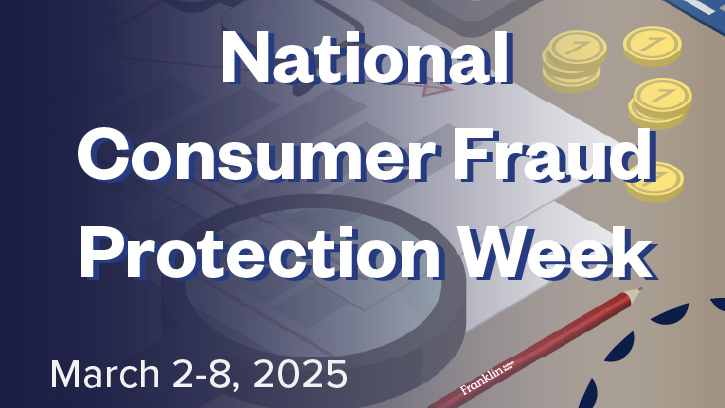How to Spot and Avoid Scams: National Consumer Protection Week

National Consumer Protection Week (March 2–8, 2025) is dedicated to helping consumers stay ahead of fraud. In this post, we’ll cover:
- The most common scams targeting individuals today
- Simple ways to verify before you trust
- Where to find reliable fraud prevention resources
Fraud and scams are on the rise, but with the right information at your fingertips, you can stay one step ahead.
The Basics of Scam Prevention
- If a deal seems too good to be true, it probably is. Verify before you trust, and be cautious of offers that seem unrealistic.
- Never pay to claim a prize. Legitimate sweepstakes or prizes will not require you to pay fees or taxes upfront.
- If someone demands payment in gift cards, it is a scam—no exceptions. No legitimate business, government agency, or service provider will ever ask for payment via gift cards. The only acceptable use for a gift card is at the store or business that issued it (e.g., using a Best Buy gift card at Best Buy).
- Watch out for high-pressure tactics. Fraudsters often create a sense of urgency, pushing you to act immediately before you have time to think.
- Think before you click. Scammers use fake emails, texts, and pop-ups to trick you into clicking malicious links that can steal your information.
Common Types of Scams to Watch Out For
Here are a few examples of scams that have affected individuals and businesses:
- Imposter Scams: Fraudsters impersonate trusted entities, such as government officials or utility companies, to steal money or information.
- Beneficiary Scams: Scammers hack accounts to pose as government representatives offering grants but request processing fees upfront.
- Tech Support Scams: Fraudsters claim there is an issue with your computer and ask for remote access or payment to “fix” it. In many cases, they use this access to steal online banking credentials and other sensitive information.
- Charitable Donation Scams: Fraudsters create fake charities, often tied to recent disasters, and request donations in untraceable forms like cash or gift cards.
- Fake Check Scams: Scammers send a counterfeit check, ask you to deposit it, and wire back the difference before the check bounces.
- Phone Takeover Scams: Fraudsters gain access to your phone through malware, phishing, or SIM swap fraud, where they trick your phone carrier into transferring your number to a SIM card they control. Once they hijack your phone, they can reset passwords and gain access to banking and email accounts.
How You Can Stay Informed
Protecting yourself from scams starts with education. Take some time to explore Franklin Savings Bank’s Fraud Resources page for detailed tips and advice on safeguarding your personal and financial information.
For additional resources, visit the Federal Trade Commission’s Consumer Website.
Have questions about fraud protection? Visit your nearest Franklin Savings Bank branch or contact us for more resources!
